IG Forum (SG16): Current Progress in AI Technology Application
Date: 10:00-12:00, Monday, 10th July 2023 (MoA)
Room: Room 413
Related Technical Committee: TC 3.2. Computational Intelligence in Control
Planned by: IFAC2023 Industry Subgroup on Artificial Intelligence (SG16)
Organizers:
Kazuhiro Nakadai (Tokyo Institute of Technology, Japan)
Ikuko Nishikawa (Ritsumeikan University, Japan)
Tadahiro Taniguchi (Ritsumeikan University, Japan)
Reiji Suzuki (Nagoya University, Japan),
Masahito Togami (Amazon Web Services, USA)
Session Chairs:
Chair: Kazuhiro Nakadai (Tokyo Institute of Technology, Japan)
Co-Chair: Ikuko Nishikawa (Ritsumeikan University, Japan)
Co-Chair: Tadahiro Taniguchi (Ritsumeikan University, Japan)
Co-Chair: Reiji Suzuki (Nagoya University, Japan),
Co-Chair: Masahito Togami (Amazon Web Service, USA)
Speakers:
Takamitsu Matsubara (Nara Institute of Science and Technology, Japan)
Jung-Woo Ha (NAVER Cloud, Korea)
Tadahiro Taniguchi (Ritsumeikan Univ., Japan)
Kenta Kawamoto (Sony Research Inc. Tokyo Laboratory, JAPAN)
Abstract
In recent years, AI technology has been actively applied to various fields such as control, robotics, automotive, voice recognition, image recognition, and natural language processing, partly due to the development of deep learning technology. On the other hand, there are some problems in applications, such as the fact that it is a black box technology, difficult to analyze and control, and requires large amounts of data and computational resources. In this forum, we will focus on the application of AI technology, and researchers who are actually engaged in such research will give lectures on the latest trends and issues in the application of AI technology.
Session Program
This forum consists of the following 4 plenary speeches:
10:00-10:30 : Reinforcement Learning in Physical Domains: From Robot Manipulation to Chemical-plant Automation
Speaker : Takamitsu Matsubara
Abstract :
Reinforcement learning (RL) is actively studied in AI and several application areas. However, most of its commercial applications, such as games, web advertising, and recommendation systems, are evolving in cyber domains. In other words, commercial use of RL in the physical domains, such as robotics, automobiles, and factories, has yet to progress. This is likely due to RL’s sample-demanding nature, which requires prohibitively-long experimental time to collect sufficient data samples. Therefore, developing RL with high sample efficiency could be the key to overcoming this situation. In this talk, we will present our developments of sample-efficient reinforcement learning algorithms focused on smooth policy updates and their application to robot manipulation tasks. Furthermore, we will also present its commercial use to a recently launched service in chemical-plant automation.
10:30-11:00 : World model-based manipulation for industrial applications
Speaker : Tadahiro Taniguchi
Abstract:
Learning to manipulate objects in industrial scenarios, such as manufacturing factories and scientific research laboratories, with a limited amount of data is a challenging task. Despite progress made in machine learning technologies over the past decade, their application to real-world industrial scenarios is limited due to the requirement of prior feature representation design, or state variables, by researchers, as well as the need for a large amount of labeled data. To address this challenge, our project focuses on developing AI robots based on world models that form a latent state space using deep generative models to control target systems. In this talk, we will present recent achievements in world model-based manipulation, particularly in industrial applications.
11:00-11:30 : Era of Hyperscale AI: Change, Impact, and Strategy of NAVER
Speaker : Jung-Woo Ha
Abstract:
In this presentation, I explore the era of hyperscale AI and the change, impact, and strategy of NAVER, South Korean No.1 internet and AI platform. With the rapid development of large foundation models such as ChatGPT and GPT4, we are encountering a new paradigm in daily work and life caused by hyperscale AI, where AI systems are becoming larger, more complex, and more impactful. In this era, tech companies should develop and deploy AI systems at scale to remain competitive, and NAVER is leading the way in this area. I provide an overview of the changes that have occurred in the AI industry and how they have impacted the development and adoption of AI technology. I then focus on the role of NAVER in the development and deployment of AI technology, including the company's AI strategy and its approach to building large-scale AI platforms. I also discuss the challenges that companies face when implementing AI technology, such as the need for high-quality data and the shortage of skilled AI professionals. To provide practical insights into these challenges, I introduce our own hyperscale AI, HyperCLOVA X, and its diverse real-world applications in Korea. Overall, this presentation provides a comprehensive overview of the era of hyperscale AI and the global AI strategy of NAVER in this rapidly evolving industry.
11:30-12:00 : Outracing Champion Gran Turismo Drivers with Deep Reinforcement Learning
Speaker : Kenta Kawamoto
Abstract:
Many potential applications of artificial intelligence involve making real-time decisions in physical systems while interacting with humans. Automobile racing represents an extreme example of these conditions; drivers must execute complex tactical maneuvers to pass or block opponents while operating their vehicles at their traction limits. Racing simulations, such as the PlayStation game Gran Turismo, faithfully reproduce the non-linear control challenges of real race cars while also encapsulating the complex multi-agent interactions. Here we describe how we trained agents for Gran Turismo that can compete with the world’s best e-sports drivers using Reinforcement Learning. We demonstrate the capabilities of our agent, Gran Turismo Sophy, by winning a head-to-head competition against four of the world’s best Gran Turismo drivers. By describing how we trained championship-level racers, we demonstrate the possibilities and challenges to control complex dynamical systems in domains where agents must respect imprecisely defined human norms.
Biography of Speakers
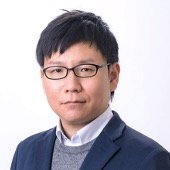 Takamitsu Matsubara received his Ph.D. degree in information science from the Nara Institute of Science and Technology, Nara, Japan, in 2007. From 2005 to 2007, he was a Research Fellow (DC1) of the Japan Society for the Promotion of Science. From 2013 to 2014, he was a Visiting Researcher with the Donders Institute for Brain Cognition and Behavior, Radboud University Nijmegen, Nijmegen, The Netherlands. He is a Professor with the Nara Institute of Science and Technology and a Visiting Researcher with ATR, Kyoto, Japan, and AIST AI Center, Tokyo, Japan. His research interests include machine learning and control theory for robotics. He received RSJ/KROS Distinguished Interdisciplinary Research Award in RO-MAN2015, the Humanoids2016 Best Oral Paper Award, and the Best Paper Award from the Japanese Neural Network Society in 2012 and 2018.
Takamitsu Matsubara received his Ph.D. degree in information science from the Nara Institute of Science and Technology, Nara, Japan, in 2007. From 2005 to 2007, he was a Research Fellow (DC1) of the Japan Society for the Promotion of Science. From 2013 to 2014, he was a Visiting Researcher with the Donders Institute for Brain Cognition and Behavior, Radboud University Nijmegen, Nijmegen, The Netherlands. He is a Professor with the Nara Institute of Science and Technology and a Visiting Researcher with ATR, Kyoto, Japan, and AIST AI Center, Tokyo, Japan. His research interests include machine learning and control theory for robotics. He received RSJ/KROS Distinguished Interdisciplinary Research Award in RO-MAN2015, the Humanoids2016 Best Oral Paper Award, and the Best Paper Award from the Japanese Neural Network Society in 2012 and 2018.
Jung-Woo Ha 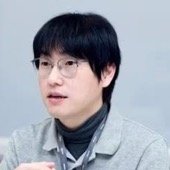 got his BS and PhD degrees in computer science from Seoul National University in 2004 and 2015. He got the 2014 Fall semester outstanding PhD dissertation award from Computer Science Dept. of Seoul National University. He worked as a research scientist and tech lead at NAVER LABS, the research head of NAVER CLOVA, and the head of NAVER AI Lab. Currently, he works as the head of AI Innovation Center in NAVER Cloud. He has contributed to the AI research community as a organizing committee member such as D&B Co-chair for NeurIPS 2023 and Social Co-Chair for ICML 2023 and NeurIPS 2022. Also, he was a Senior area chair for COLING 2022 and an area chair for NeurIPS 2022, and is an area chair for ICML 2023 and NeurIPS 2023. His research interests include large language models, generative models, multimodal representation learning and their practical applications for real-world problems.
got his BS and PhD degrees in computer science from Seoul National University in 2004 and 2015. He got the 2014 Fall semester outstanding PhD dissertation award from Computer Science Dept. of Seoul National University. He worked as a research scientist and tech lead at NAVER LABS, the research head of NAVER CLOVA, and the head of NAVER AI Lab. Currently, he works as the head of AI Innovation Center in NAVER Cloud. He has contributed to the AI research community as a organizing committee member such as D&B Co-chair for NeurIPS 2023 and Social Co-Chair for ICML 2023 and NeurIPS 2022. Also, he was a Senior area chair for COLING 2022 and an area chair for NeurIPS 2022, and is an area chair for ICML 2023 and NeurIPS 2023. His research interests include large language models, generative models, multimodal representation learning and their practical applications for real-world problems.
Tadahiro Tanig uchi is a Professor at Department of Information and Engineering, Ritsumeikan University, where he has been since April 2017. He received his ME and Ph.D. degrees from Kyoto University in 2003 and 2006, respectively. Taniguchi was a JSPS Research Fellow at the Department of Mechanical Engineering and Science, Graduate School of Engineering, Kyoto University, from April 2005 to March 2008, and later at the Department of Systems Science, Graduate School of Informatics, Kyoto University. He worked as an Assistant Professor and Associate Professor at the Department of Human and Computer Intelligence, Ritsumeikan University, from April 2008 to March 2017. He was also a Visiting Associate Professor at Imperial College London's Department of Electrical and Electronic Engineering from September 2015 to September 2016. He is also a visiting general chief scientist at Panasonic Holdings Corporation. His research focuses on machine learning, emergent systems, cognitive robotics, and symbol emergence in robotics.
uchi is a Professor at Department of Information and Engineering, Ritsumeikan University, where he has been since April 2017. He received his ME and Ph.D. degrees from Kyoto University in 2003 and 2006, respectively. Taniguchi was a JSPS Research Fellow at the Department of Mechanical Engineering and Science, Graduate School of Engineering, Kyoto University, from April 2005 to March 2008, and later at the Department of Systems Science, Graduate School of Informatics, Kyoto University. He worked as an Assistant Professor and Associate Professor at the Department of Human and Computer Intelligence, Ritsumeikan University, from April 2008 to March 2017. He was also a Visiting Associate Professor at Imperial College London's Department of Electrical and Electronic Engineering from September 2015 to September 2016. He is also a visiting general chief scientist at Panasonic Holdings Corporation. His research focuses on machine learning, emergent systems, cognitive robotics, and symbol emergence in robotics.
Kenta Kawamoto is a Senior AI Engineer at Sony Research Inc. With a career 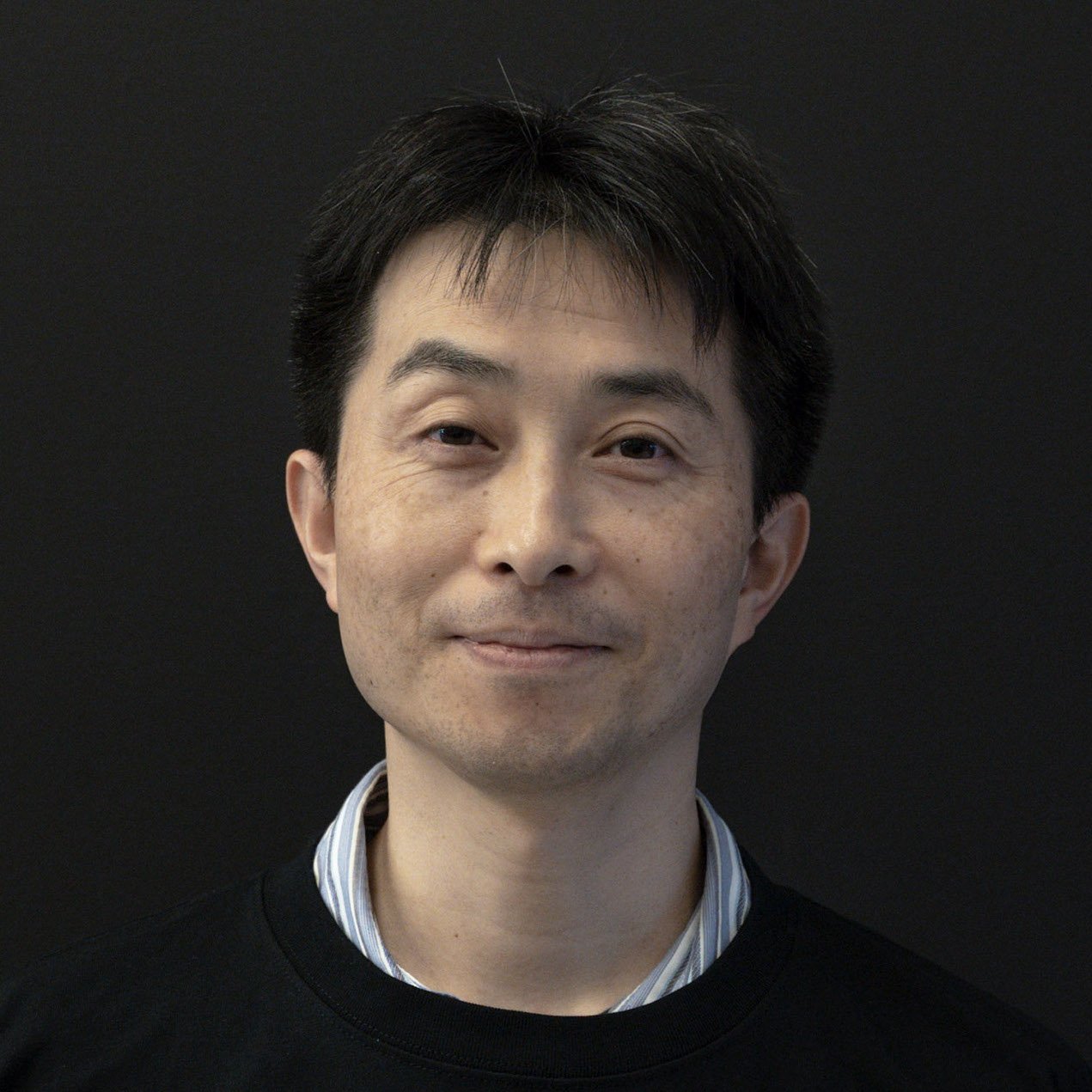 spanning over two decades at Sony, he has been actively involved in research and development pertaining to various personal robots designed for domestic use. Notable contributions include his work on AIBO, the pioneering pet-type entertainment robot (1999), QRIO, a compact humanoid robot (2002), and Rudy, a home assistant robot (2010). He then subsequently directed his research efforts towards developmental learning, encompassing behavioral learning approaches, with the aim of achieving machine intelligence that mirrors the adaptability of humans. He received Best Paper Award at IEEE ICDL-EpiRob 2011 and Sony Outstanding Engineer Award 2020. He plays a vital role in the Gaming project at Sony Research and serves as one of the key figures in the development of Gran Turismo Sophy.
spanning over two decades at Sony, he has been actively involved in research and development pertaining to various personal robots designed for domestic use. Notable contributions include his work on AIBO, the pioneering pet-type entertainment robot (1999), QRIO, a compact humanoid robot (2002), and Rudy, a home assistant robot (2010). He then subsequently directed his research efforts towards developmental learning, encompassing behavioral learning approaches, with the aim of achieving machine intelligence that mirrors the adaptability of humans. He received Best Paper Award at IEEE ICDL-EpiRob 2011 and Sony Outstanding Engineer Award 2020. He plays a vital role in the Gaming project at Sony Research and serves as one of the key figures in the development of Gran Turismo Sophy.
Biography of Organizers
Kazuhiro Nakadai i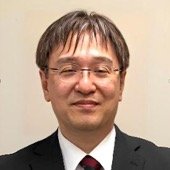 s a professor at the Department of Systems and Control Engineering, School of Engineering, Tokyo Institute of Technology. He received a B.E. in 1993, an M.E. in 1995, and a Ph.D. in 2003 from the University of Tokyo. He worked with NTT and NTT Comware from 1995 to 1999, with the Kitano Symbiotic Systems Project, ERATO, JST as a researcher from 1999 to 2003, and with Honda Research Institute Japan, Co., Ltd. as a principal scientist from 2003 to 2022. He has had two concurrent positions at Tokyo Institute of Technology from 2006 to 2022 and at Waseda University from 2011 to 2018. His research interests include AI, robotics, signal processing, computational auditory scene analysis, multi-modal integration, and robot audition. He has been an executive board member for JSAI from 2015 to 2016, and for RSJ from 2017 to 2018. IEEE fellow. RSJ fellow.
s a professor at the Department of Systems and Control Engineering, School of Engineering, Tokyo Institute of Technology. He received a B.E. in 1993, an M.E. in 1995, and a Ph.D. in 2003 from the University of Tokyo. He worked with NTT and NTT Comware from 1995 to 1999, with the Kitano Symbiotic Systems Project, ERATO, JST as a researcher from 1999 to 2003, and with Honda Research Institute Japan, Co., Ltd. as a principal scientist from 2003 to 2022. He has had two concurrent positions at Tokyo Institute of Technology from 2006 to 2022 and at Waseda University from 2011 to 2018. His research interests include AI, robotics, signal processing, computational auditory scene analysis, multi-modal integration, and robot audition. He has been an executive board member for JSAI from 2015 to 2016, and for RSJ from 2017 to 2018. IEEE fellow. RSJ fellow.
Ikuko Nishikawa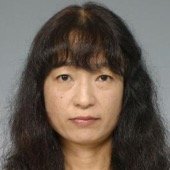 is a Professor and Vice Dean of College of Information Science and Engineering at Ritsumeikan University. Her research interests focus on machine learning and optimization, including anomaly detection and domain adaptation using deep generative models, with the application to social systems, biological or medical images. She received Doctor of Science in 1993, majoring in physics with theoretical research on the synchronizing dynamics of the coupled systems of phase oscillators. She is a member of several societies including The Society of Instrument and Control Engineers (SICE), The Institute of Systems, Control and Information Engineers (ISCIE), Japanese Neural Network Society (JNNS) and IFAC TC3.2.
is a Professor and Vice Dean of College of Information Science and Engineering at Ritsumeikan University. Her research interests focus on machine learning and optimization, including anomaly detection and domain adaptation using deep generative models, with the application to social systems, biological or medical images. She received Doctor of Science in 1993, majoring in physics with theoretical research on the synchronizing dynamics of the coupled systems of phase oscillators. She is a member of several societies including The Society of Instrument and Control Engineers (SICE), The Institute of Systems, Control and Information Engineers (ISCIE), Japanese Neural Network Society (JNNS) and IFAC TC3.2.
Tadahiro Taniguchi (see the "Biography of Speakers”)
Reiji Suzuki is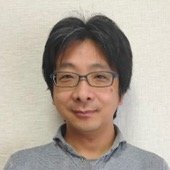 an Associate Professor at the Department of Complex Systems Science, Graduate School of Informatics, Nagoya University in Nagoya, Japan. His research encompasses interactions between developmental (learning), ecological and evolutionary processes (eco-evo-devo) in biological and social systems utilizing artificial life approaches such as agent-based models and artificial creatures. He is also interested in understanding acoustic interactions among songbirds as complex systems (e.g., temporal sound space partitioning based on acoustic niche hypothesis) and applying robot audition techniques (HARK) to better observation of their spatial-spectral-temporal patterns in field conditions. He is a member of International Society of Artificial Life.
an Associate Professor at the Department of Complex Systems Science, Graduate School of Informatics, Nagoya University in Nagoya, Japan. His research encompasses interactions between developmental (learning), ecological and evolutionary processes (eco-evo-devo) in biological and social systems utilizing artificial life approaches such as agent-based models and artificial creatures. He is also interested in understanding acoustic interactions among songbirds as complex systems (e.g., temporal sound space partitioning based on acoustic niche hypothesis) and applying robot audition techniques (HARK) to better observation of their spatial-spectral-temporal patterns in field conditions. He is a member of International Society of Artificial Life.
Masahito Togami is a Principal Applied Scientist at Amazon Web Services (AWS), California, United States. He received B.E., M.E., and Ph.D. degrees in aerospace engineering from the University of Tokyo in 2000, 2002, and 2011, respectively. He joined Amazon in October 2021. He engaged in research and development on speech and audio signal processing including sound source separation. He is the author of "Sound Source Separation with Python" in 2020. He received several awards such as the Awaya Award in 2009, the Itakura Award in 2010 from the Acoustical Society of Japan (ASJ), and the 29th TELECOM System Technology Award from the Telecommunications Advancement Foundation in 2014. He is a member of the IEICE, the ASJ, and the JSAI and a senior member of the IEEE.
is a Principal Applied Scientist at Amazon Web Services (AWS), California, United States. He received B.E., M.E., and Ph.D. degrees in aerospace engineering from the University of Tokyo in 2000, 2002, and 2011, respectively. He joined Amazon in October 2021. He engaged in research and development on speech and audio signal processing including sound source separation. He is the author of "Sound Source Separation with Python" in 2020. He received several awards such as the Awaya Award in 2009, the Itakura Award in 2010 from the Acoustical Society of Japan (ASJ), and the 29th TELECOM System Technology Award from the Telecommunications Advancement Foundation in 2014. He is a member of the IEICE, the ASJ, and the JSAI and a senior member of the IEEE.

